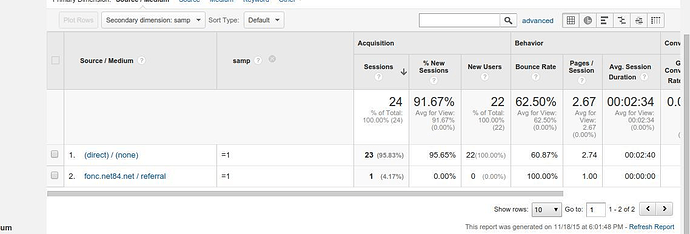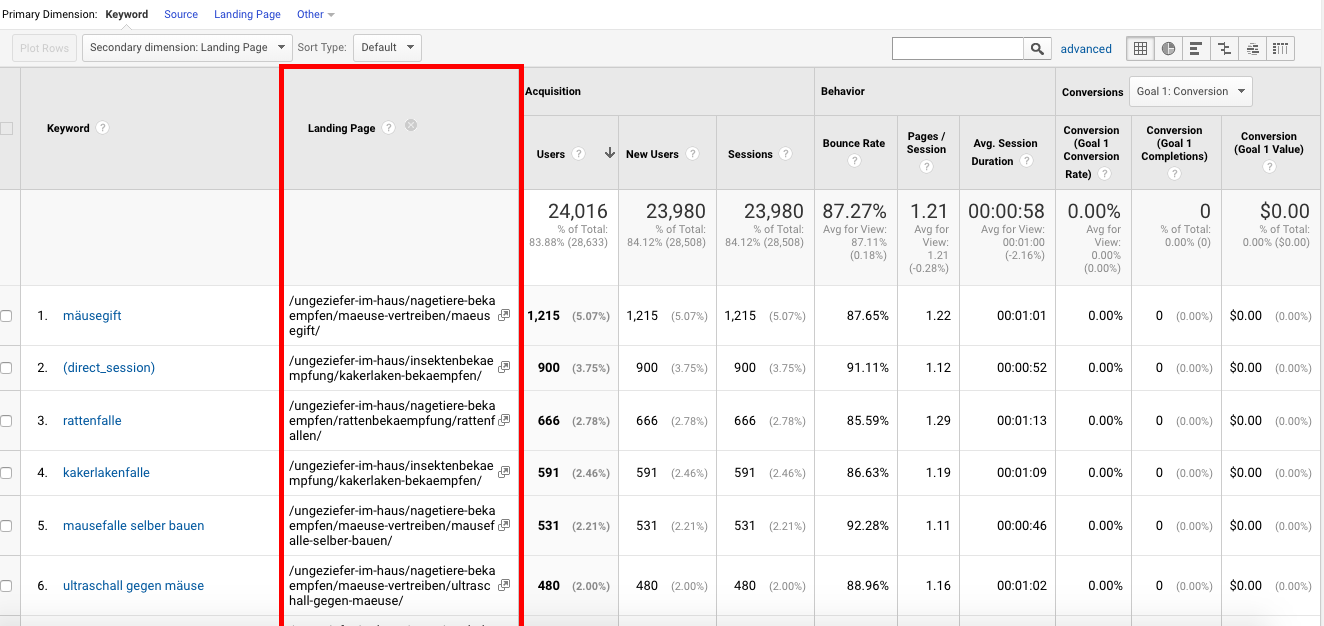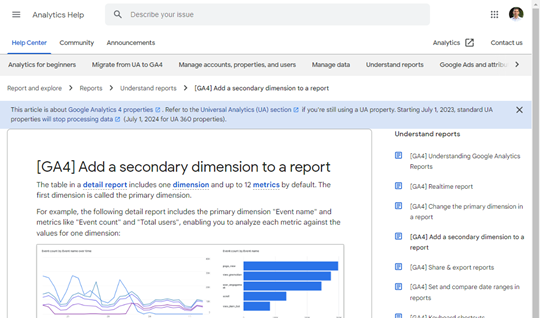Essential Understanding: 'Secondary Dimensions' in Google Analytics Explained
Essential Understanding: 'Secondary Dimensions' in Google Analytics Explained
Blog Article
Browsing the Midst of Secondary Measurement in Google Analytics: A Detailed Exploration on Its Functionality
In the realm of electronic analytics, the complexities of data interpretation frequently hold the trick to opening valuable insights. Within the extensive toolkit of Google Analytics exists a feature that acts as a surprise treasure for those that look for a much deeper understanding of user behavior and website performance. Second measurements, though relatively uncomplicated initially glimpse, harbor a wealth of untapped prospective waiting to be used. As we embark on this journey to explore the nuanced capability of additional dimensions, we will certainly uncover exactly how this feature can illuminate patterns, unveil connections, and inevitably lead the way for notified decision-making in the digital landscape.
Recognizing Secondary Measurements in Google Analytics

Understanding how second measurements work is important for leveraging the complete power of Google Analytics. By incorporating primary metrics with second dimensions, you can get valuable understandings that drive educated decision-making and optimization strategies.
Leveraging Secondary Dimensions for Information Evaluation
Building upon the foundational understanding of exactly how additional measurements enhance information evaluation in Google Analytics, the use of these added layers of info comes to be vital in extracting valuable insights for notified decision-making and optimization methods. By leveraging additional dimensions, experts can dig deeper into the performance metrics by adding even more context to the main dimensions, hence discovering surprise patterns and relationships that might not appear initially glance. This much deeper degree of analysis allows businesses to better understand customer actions, identify patterns, and pinpoint areas for enhancement.
Moreover, second measurements offer a more comprehensive sight of the information, enabling for segmentation based on various specifications such as demographics, devices, web traffic resources, and extra. This segmentation helps with an extra granular analysis, enabling organizations to tailor their approaches and campaigns to details target market sections for boosted targeting and customization. Basically, the critical use secondary dimensions encourages companies to make data-driven decisions that drive growth and success in the digital landscape.
Advanced Techniques for Additional Measurement Execution
Checking out intricate approaches to harness the complete possibility of second measurements in Google Analytics raises the deepness and elegance of data analysis for critical decision-making. One innovative technique for carrying out additional measurements is the usage of customized dimensions. By defining personalized measurements, users can sector information even more to obtain even more particular insights into customer habits, such as tracking communications with particular elements on a webpage or keeping track of the performance of a certain advertising and marketing project. An additional sophisticated technique is the utilization of regex (regular expressions) within second dimensions. Regex permits more effective and adaptable pattern matching, allowing users to create complicated filters for information evaluation. Furthermore, incorporating second dimensions with innovative sections can offer even more granular insights by applying numerous layers of segmentation to the data. This approach enables a deeper understanding of customer behavior based upon various criteria simultaneously. Carrying out these innovative techniques for additional dimensions in Google Analytics empowers customers to conduct much more advanced analysis and make data-driven choices with precision.
Interpreting Insights With Secondary Dimensions

When interpreting insights through secondary dimensions, it is important to take into consideration the context of the information and exactly how different dimensions connect with each various other. For example, understanding which specific traffic sources bring about higher conversion prices or recognizing which devices customers prefer for making purchases can provide actionable understandings for maximizing advertising and marketing campaigns and improving overall site performance. By carefully checking out the information with secondary measurements in mind, services can make educated decisions that drive significant outcomes and boost their electronic presence.
Maximizing Performance With Additional Dimensions

One key way to maximize efficiency with secondary measurements is by segmenting data much more granularly. This allows you to separate particular factors that might be affecting your metrics and acquire a much better understanding of what drives success or failure in your electronic efforts. By combining additional dimensions such as 'gadget classification' and 'touchdown web page,' you can see this determine which device best site types are most reliable for certain touchdown pages, allowing you to customize your approaches accordingly.
Additionally, making use of additional measurements can help you recognize trends, patterns, and correlations that might not be noticeable when evaluating information with primary dimensions alone. This much deeper degree of evaluation can bring about even more educated decision-making and ultimately enhance the general efficiency of your website or digital advertising projects.
Verdict
Finally, additional dimensions in Google Analytics play a critical role in improving data analysis and providing deeper insights into site efficiency. By using sophisticated methods and analyzing the information successfully, companies can maximize their methods and improve total efficiency. Comprehending the capability of second dimensions is necessary for making educated decisions and driving success in the electronic landscape.
By leveraging secondary dimensions, analysts can dig much deeper right into the efficiency metrics by including even more context to the key dimensions, therefore discovering surprise patterns and connections that might not be apparent at first glance. One innovative technique for executing second measurements is the usage of customized measurements.Having actually grasped sophisticated techniques like custom-made dimensions and regex for second dimension execution in Google Analytics, the following crucial step is interpreting the important insights obtained through these advanced data segmentation approaches. Analyzing understandings through additional dimensions involves assessing the connections between the key and additional dimensions chosen, uncovering patterns, patterns, and connections that might not be right away evident when looking at the data in its whole.When interpreting understandings with additional dimensions, it is crucial to think about the context of the information and how different dimensions interact with each other.
Report this page